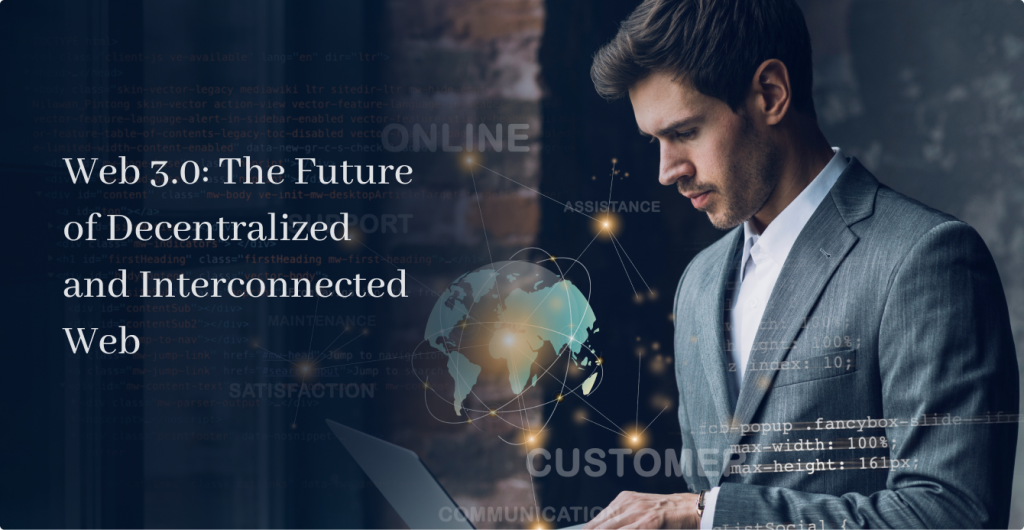Web 3.0: The Future of Decentralized and Interconnected Web
by admin
Posted on 04/5/23 8:31 AM

Web 3.0, also known as the decentralized web, is the next phase in the evolution of the internet. While the first phase (Web 1.0) was characterized by static websites and the second phase (Web 2.0) was characterized by interactive and user-generated content, Web 3.0 is defined by decentralized applications (dApps), smart contracts, and blockchain technology.
The importance of Web 3.0 lies in its potential to address many of the challenges that currently exist on the internet. Web 2.0 platforms are centralized and controlled by a small group of companies, which have significant power over user data and content. This has led to issues such as data breaches, censorship, and privacy violations. In contrast, Web 3.0 aims to create a more open and decentralized internet, where users have more control over their data and content.
One of the key benefits of Web 3.0 is the potential for increased privacy and security. Decentralized applications are designed to run on a blockchain network, which is inherently secure due to its decentralized nature. Smart contracts, which are self-executing contracts with the terms of the agreement written into code, also provide a higher level of security and transparency than traditional contracts.
Another benefit of Web 3.0 is the potential for increased innovation. Decentralized applications can be built on open-source protocols, which means that anyone can contribute to the development of the platform. This creates a more collaborative and inclusive environment for innovation, which can lead to new and exciting applications that would not have been possible under Web 2.0.
Finally, Web 3.0 has the potential to create new economic models and opportunities. Blockchain technology enables the creation of new digital assets, such as cryptocurrencies, which can be used for payments, investments, and other financial transactions. Decentralized applications can also enable peer-to-peer transactions and the creation of new markets, which can lead to new opportunities for entrepreneurs and investors.
In conclusion, Web 3.0 represents a significant shift in the way that the internet works, with the potential to address many of the challenges that currently exist on the web. By creating a more open, decentralized, and secure internet, Web 3.0 has the potential to unlock new levels of innovation and economic opportunity.
Categories
-

JavaScript Frameworks
02/27/24 12:46 PM
-

API First Development
02/22/24 6:19 AM
-

Mobile Commerce: The Future of Online Shopping
02/22/24 6:09 AM
-

What is ChatGPT? Exploring the Latest Trends
02/22/24 5:57 AM
-

The Power of AI in App Development
02/5/24 7:44 AM
